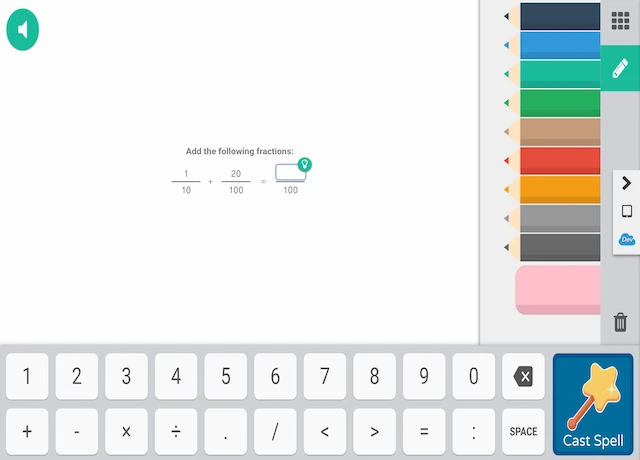Math can be a daunting subject. Not only does it cover a huge range of skills, but it’s also one of the few subjects where a strong understanding of the fundamentals is essential for future learning.
Math is taught differently now than when many parents were in school. There’s more focus on the basics, which is great (no, really, it is). But that can feel incredibly frustrating when you’re trying to help your child understand their math homework.
No matter your history with math, you can still help your child master mathematical concepts at home. And you may even have some lightbulb moments you missed in middle school.
Whether your child is struggling with math or wants to improve their skills, It’s time to ditch the math stress and tackle this subject together! Keep reading for our 14 best tips to help kids with math.
How to help kids with math at home (even if you hate math)
If you have a less than stellar math history, it’s okay! You can still help your child learn the math they need to succeed. Here’s how.
1. Maintain a positive attitude
A lot of kids (and adults) feel anxiety when presented with a math problem. But if your child is struggling with a concept, that doesn’t mean they’re bad at math. You’re not bad at math either!
Math is a skill that takes practice, just like any other. You’ll learn it, even if it’s confusing right now. This just means you don’t understand it yet.
Encourage this attitude with your child to help them build their math confidence. They can grow into math understanding, but it takes time. Use a growth mindset approach and you’ll both be amazed at what you can learn.
2. Ask math questions that interest your child
Let’s face it — some math can be boring. If your kid doesn’t care much about trains, why should they care about how fast they’re going or where they’ll meet? Instead of pushing them to answer these standard questions, ask them about what they’re actually interested in.
Math is everywhere. You’ll find mathematical relationships throughout nature. Your child can discover angles and physics while jumping toy monster trucks. Or they can explore measurements while baking or doing crafts.
Find numbers in what they already love and watch their interest in math grow!
3. Encourage communication
Your kid can talk your ear off about their favorite Roblox game, but when it comes to school questions, they shut down. That’s normal, but it can also make it difficult to keep up with their studies.
When possible, try to open up some judgement-free conversations about math. Ask how it’s going and if they feel good about their new lessons. Don’t jump in and try to solve their problems right away. And be careful about remarks like, “oh, that’s easy”. If they talk, just listen.
If your child is reluctant to share, check in with their teacher. Ask about the topics they’re studying and how you can help. Then, use these insights to get the conversation going at home.
4. Be patient and take it slow
Math builds on itself, but that means it can be tricky to keep up if your child is struggling with a new concept. When this happens, slow down and back up. Don’t keep pushing new ideas until they understand the old ones.
This same advice works for you, too. Be patient with yourself — it’s been a while since you’ve learned 4th grade math, and the work may look a lot different now. But with some time and perseverance, you can help your child succeed.
5. Practice and refine math vocabulary
Math vocabulary is all around us, but that doesn’t mean we’re very comfortable with it. Try using math vocabulary in everyday language and it will slowly start feeling a lot less intimidating. Bring up percentages when you’re shopping a sale, or talk about parts of a whole while cooking.
Of course, there are plenty of math words we don’t see everyday. Do you remember exponents, tangents, or the commutative property? If not, that’s totally okay! All you need is a refresher and some practice.
For example, when your child is studying areas, take some time to make sure you understand what you’re actually discovering. Understanding the bigger concept (calculating the amount of surface space vs just plugging in length and width) is what will bring those light bulb moments.
6. Show math in everyday life
We’ve said it before, but it’s worth repeating — math is everywhere. It’s probably not trigonometry or pre-calculus, but you’re doing math all the time. Pay attention and you’ll catch these math moments. When you do, share them with your child.
When kids are young, just counting or sorting is a great start. As they get older, look for math lessons while baking, shopping, playing games, or talking about money. Budgeting is a major life skill that uses so much math. Find these practical math moments and help your child see the value in a math education.

7. Get your child to teach you math
Math looks a little different now. If your kid’s homework is confusing for you, ask them to explain their process.
This is a great connecting moment to share with your child. And it can set you up to be a better helper if they run into frustration in later lessons.





